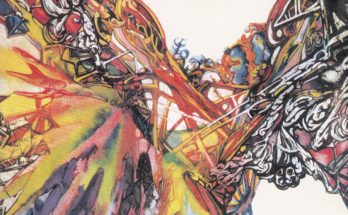By Rodrigo Díaz
Inspired by African World Heritage Day, I undertook curating three art works (film, literary, and musical) from this great continent. Its history—as every historically sensitive person knows—has been the most painful on the globe: slavery, looting, and invisibility are some of the horrendous stigmas of ruthless colonization. Political instability, malnutrition, and the exploitation of natural resources by foreign companies are further deep wounds that should embarrass us as a species. This is a consequence of unacknowledged Eurocentrism and Westernism that still prevail—perhaps because we don’t want to face it. It does not allow talent to develop on an equal footing compared to anywhere else on the planet, even well into the 21st century. But art is art, and aesthetics know no borders—political, historical, or racial. Art transcends everything that we have constructed—conceptually and not—that has separation as its goal. And as is well known, art, like ideas, grows when it is shared, because in the end we are all the same.
Waiting for the Barbarians, Ciro Guerra, 2019
This 2019 film, directed by Ciro Guerra, is based on a novel by South African Nobel Prize winner, J.M. Coetzee (he also wrote the screenplay). It is a fascinating contemporary dystopian tale about imperialism and the barbarism it implies. The story takes place in a nameless territory on the border of an empire—the perfect excuse to apply the theme of the book not only to the horrors of apartheid in South Africa, but to all societies devastated by the colonialist powers of the 20th century. It portrays the meaninglessness of territorial conquests and the abuse to which the misunderstood peoples who are their victims are subjected. The nameless protagonist watches in terror the torture these peoples are subjected to, while he is tortured by his humanist ideals that ring hollowly in the inhuman minds and hearts of his peers. The empire prepares for an invasion by the barbarians that never comes, and the spectator’s suspicions are progressively confirmed. The barbarians are not those anonymous, nomadic peoples who have always inhabited those lands; the barbarians came rather brandishing the flag of the empire and spreading death and desolation.
The Two Brothers, Germano Almeida, 1995
Germano Almeida is probably Cape Verde’s most prolific, recognized, and relevant author. The Two Brothers, published in 1995, is among his 16 published works. Several of his books have been translated from the Portuguese. Almeida studied law at the Classical University of Lisbon, and practices as a lawyer on the island of São Vicente. In the mid-1970s Almeida was a prosecutor on the island of Santiago in the case of André for the crime of fratricide. Much later he wrote a novel based on that chapter of his life as a public minister. With black humor and sarcastic social criticism, the author recounts this crime, where society’s macho culture corners an individual to do what is apparently demanded by all. A vile love and brotherly betrayal become the crime with which society quenches its fearsome thirst for supposed justice. This confused individual ends up taking the blame. Sometimes social values, tinged by machismo, anger, and disappointment are enough for a human being to become a murderer.
Electricity, Ibibio Sound Machine, 2022The musical group Ibibio Sound Machine undoubtedly represents part of African reality today. For example, Eno Williams, the band’s vocalist¸ was born in London but spent most of his childhood in Nigeria with his family. Along with members of the band Ghanaians Alfred Kari, Afla Sackey, and Joseph Amoako; and Brazilian Anselmo Netto, among others—they fuse afrofunk, drum, and bass with some Nigerian songs. Electricity, produced in 2022, is Ibibio Sound Machine’s fourth album under Merge Records label (North Carolina, USA). It was produced by the British band Hot Chip, which clearly shows its hand on the album with the synthesizer, played by Al Doyle. That especially stands out on the track «Protection from Evil,» a vertiginous piece (my favorite) with which this fabulous EP opens. Electricity’s 12 tracks take us on a dream trip through the steppes of the Congo on a beautiful evening, the energy that reverberates in the wildlife, and through the night streets of big cities like Nairobi or Lagos (or any city in the world).




